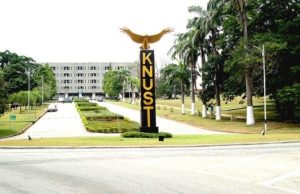By Jones Anlimah
In a ceremony marked by grandeur and tradition, the President of the Republic, Nana Addo Dankwa Akufo-Addo, on Monday, December 30, 2024, conferred national honours on several distinguished individuals, including government appointees, to acknowledge their contributions to the country’s development at the Ghana National Awards.
Among the honorees was Dr. Mahamudu Bawumia, Vice President and Chairman of the Economic Management Team, who received the highest national honor, the Order of the Star of Ghana. While the awards aim to celebrate excellence and inspire patriotism, their timing has ignited significant public debate, given the prevailing economic hardships and the outcomes of the recent general elections.
The elections, widely regarded as a referendum on the government’s performance, revealed a stark message: only 38% of voters expressed confidence in the administration’s handling of the economy. Dr. Bawumia, who contested as the presidential candidate for the ruling New Patriotic Party (NPP), garnered just 38% of the vote, underscoring widespread dissatisfaction.
This discontent stems from persistent economic challenges, including surging inflation, a depreciating cedi, and mounting unemployment, all of which have compounded the struggles of ordinary Ghanaians. Against this backdrop, the decision to honor Dr. Bawumia with the Order of the Star of Ghana has sparked questions about the appropriateness of such recognition at this time.
National awards are a solemn tradition designed to celebrate individuals who have made exceptional contributions across various fields. Many of this year’s recipients, including professionals, innovators, and public servants, undoubtedly earned their accolades through dedication and service. However, public perception is critical, especially when honorees include figures closely linked to ongoing national struggles.
For many Ghanaians, the award to Dr. Bawumia appears discordant with the nation’s current realities. As head of the Economic Management Team, his leadership has been subject to intense scrutiny, with critics attributing much of the economic downturn to policies implemented under his watch. Moreover, his lackluster performance in the presidential elections has further amplified concerns, making the award seem disconnected from the sentiments expressed by voters at the polls.
This controversy has reignited discussions about the timing, criteria, and optics of national honors. While recognizing achievement is crucial, doing so in a way that aligns with public sentiment and acknowledges prevailing challenges is equally vital. Transparency in the selection process, coupled with clear justifications for each award, could mitigate such controversies in the future.
The optics of leadership recognition are particularly significant during periods of economic hardship. Public acknowledgment of figures perceived as responsible for current challenges may inadvertently appear tone-deaf if not accompanied by tangible efforts to address the nation’s issues. As Ghana navigates these turbulent times, it is essential for leadership to heed the messages conveyed through electoral outcomes and public reactions, prioritizing actions that restore confidence and alleviate the burdens on citizens.
Ultimately, the Ghana National Awards should serve as a unifying force, celebrating achievements while inspiring collective resolve to confront the country’s myriad challenges. For these honors to fulfill their purpose, timing and context must be carefully considered to ensure they uplift the nation rather than deepen existing divides.
By striking a balance between recognition and public sentiment, Ghana can ensure its national awards, popularly known as the Ghana National Awards, resonate positively, fostering hope, solidarity, and a shared commitment to progress.













